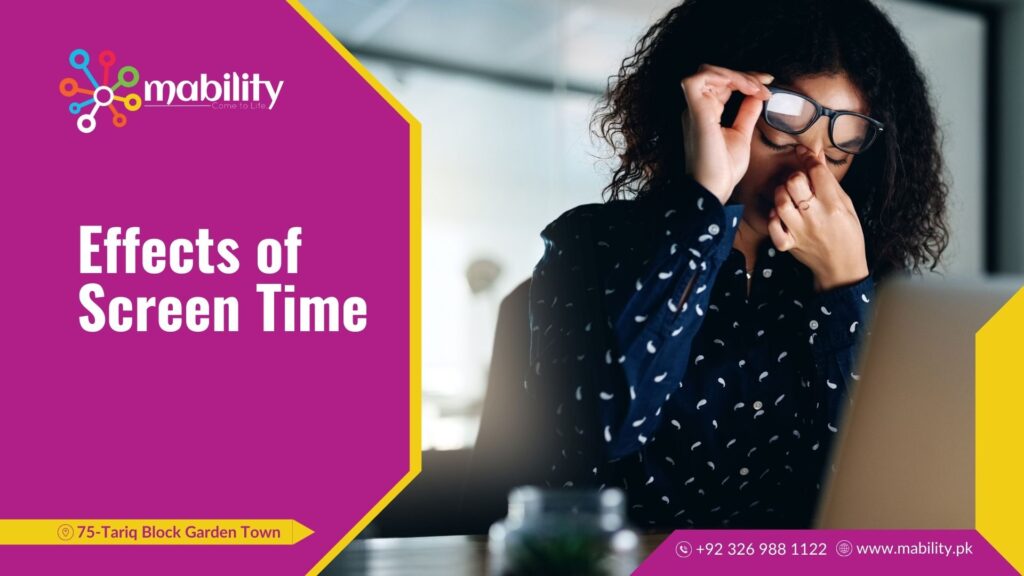
Effects of Screen Time
Today, I’ll explain the most important topic of this era which is, effects of screen time. Screen time refers to the amount of time an individual spends in front of screens such as smartphones, tablets, computers, televisions, and gaming consoles. The effects of screen time can be complex and varied, impacting various aspects of physical, mental, and social well-being. Here are some detailed explanations of these effects:
Physical Effects:
- Excessive screen time often leads to a sedentary lifestyle, reducing physical activity levels. Prolonged sitting can contribute to health issues such as obesity, cardiovascular problems, and musculoskeletal disorders.
- Extended screen exposure can cause digital eye strain, characterized by symptoms like dry eyes, eye fatigue, headaches, and blurred vision. Additionally, excessive screen time, especially before bedtime, may disrupt sleep patterns due to the blue light emitted by screens, which interferes with the production of melatonin, the hormone responsible for regulating sleep-wake cycles.
Also Read: What is Virtual Autism?
Mental and Cognitive Effects:
- Excessive screen time, particularly in young children, can affect brain development. Excessive exposure to screens, especially during critical periods of development, may hinder the development of important cognitive skills such as attention, memory, and language.
- Continuous exposure to digital devices can lead to cognitive overload, as the brain is bombarded with excessive information, notifications, and stimuli. This can impair concentration, decision-making, and problem-solving abilities.
- Excessive screen time has been linked to mental health issues such as anxiety, depression, and low self-esteem, especially among adolescents and young adults. Social media use, in particular, can contribute to feelings of inadequacy, social isolation, and FOMO (fear of missing out).
Social Effects:
- Excessive screen time may interfere with the development of social skills, as individuals spend less time engaging in face-to-face interactions and more time communicating through digital platforms. This can result in difficulties in understanding non-verbal cues, empathy, and building meaningful relationships.
- Social media platforms often promote social comparison, leading individuals to compare their lives with others and experience feelings of inadequacy or envy. Moreover, excessive screen time increases the risk of cyber bullying, harassment, and exposure to inappropriate content, which can have detrimental effects on mental health and self-esteem.
Behavioral Effects:
- Excessive screen time, especially when it involves activities such as gaming, social media, or streaming, can lead to addictive behaviors. Individuals may struggle to control their screen usage, prioritize screen time over other activities, and experience withdrawal symptoms when unable to access digital devices.
- Prolonged screen exposure can impair attention and concentration, particularly in children and adolescents. Continuous multitasking and rapid shifts in attention, common in screen-based activities, may hinder the ability to focus and sustain attention on tasks that require deep cognitive engagement.
Also Read: Poor Posture Treatment in Lahore
Conclusion:
In conclusion, while screens and digital devices offer numerous benefits and opportunities for learning, entertainment, and connectivity, excessive screen time can have adverse effects on physical health, mental well-being, cognitive development, social skills, and behavior. It is essential to strike a balance and adopt healthy screen habits, such as setting limits on screen time, taking regular breaks, engaging in physical activities, and fostering face-to-face interactions.
